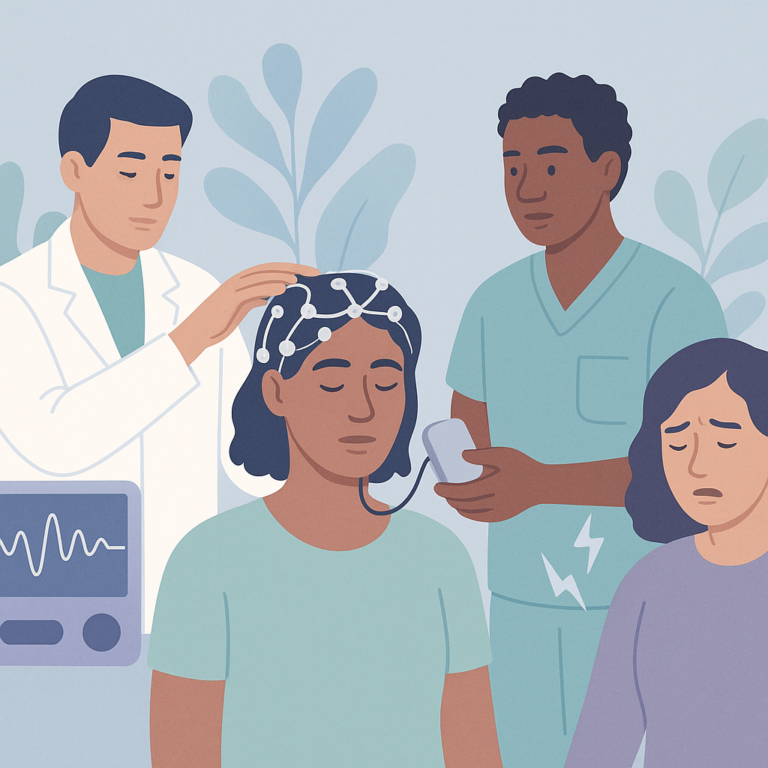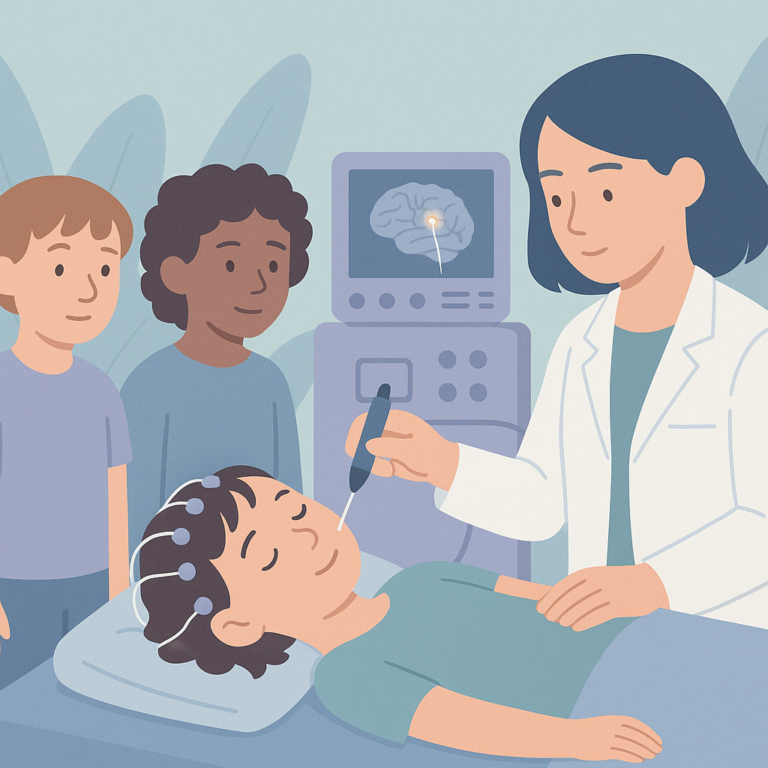Targeting Deep Brain Stimulation for Better Epilepsy Outcomes
Researchers studied deep brain stimulation (DBS) as a treatment for people with epilepsy who do not respond to medications and cannot have surgery to remove the affected brain tissue.
This hub covers drug-resistant epilepsy: When seizures aren’t controlled after trying two appropriate medicines. Research-backed next steps on diet therapies, devices, surgery evaluation, and safety.
If seizures aren’t controlled after two meds, it’s worth at least an evaluation at an epilepsy center.
Not necessarily. Some familiar consider it earlier depending on seizure type and goals.
Yes. Treatment response can change over time, and combinations/approaches matter.
Seizure frequency, triggers, sleep, missed meds, side effects, and rescue med use.

Researchers studied deep brain stimulation (DBS) as a treatment for people with epilepsy who do not respond to medications and cannot have surgery to remove the affected brain tissue.

This study looked at how well three different neuromodulation techniques—Vagus Nerve Stimulation (VNS), Responsive Neurostimulation (RNS), and Deep Brain Stimulation (DBS)—work for adults with refractory bitemporal lobe epilepsy (BTLE), which is a type of epilepsy that is hard to treat…

This study focuses on the use of vagus nerve stimulation (VNS) as a treatment for status epilepticus in children, which is a serious condition where seizures last too long or happen back-to-back.

Researchers studied how machine learning (ML) can help predict where seizures start in patients with drug-resistant epilepsy (DRE).

A study was conducted to look at how effective Vagus Nerve Stimulation (VNS) is for children with drug-resistant epilepsy (DRE), which means their seizures do not respond well to medication.

This study looked at how Finnish adolescents with epilepsy transition to adult healthcare.

This study looked at how brain scans can help predict which patients with temporal lobe epilepsy (TLE) will become seizure-free after a specific type of surgery called laser interstitial thermal therapy (LITT).

This study looked at the effects of a treatment called stereotactic MRI-guided laser ablation (SLA) on children with tuberous sclerosis complex (TSC) who have epilepsy that does not respond to medication.

Researchers studied the challenges and effectiveness of epilepsy surgery in children with drug-resistant epilepsy (DRE), which affects about 30% of young patients.